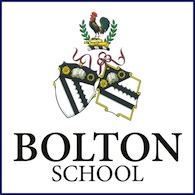In this third glimpse into the future in education, based on developing the trends of what has happened in the past decades, I look at the impact of technology.
Obviously, in a school where everyone has an iPad, we feel that technology will change how pupils learn and how they are taught. There are huge possibilities for both evolutionary change, doing what we do now but differently. But it is important in looking at technology to be honest about those times it does not improve what can be done. The e-learning takes place alongside a variety of other teaching techniques, not replacing them. One mistake of the past has been to imagine technology as the answer to all possible questions. It cannot be. However, an equally false position is to assert that technology has no place in education. It must have.
There are also significant opportunities for revolutionary change. This is harder as everyone in education knows the system we know, has been educated in it, trained in it , is currently at school or is a parent who expects of a school what they themselves experienced.
Most also have experiences of previous technological revolutions that have failed to deliver on early promise: interactive whiteboards never did quite change the world, laptop trollies never did have useful battery length or sensible log in times. Much of that experience needs to be forgotten in reengineering education to involve mobile tablet technology. It does not provide a useful platform from which to work. An example of that is the insistence on using class sets of tablets. That is what we did with laptops. Mobile devices are intrinsically personal and so much more useful when they belong to an individual. They are not good at being shared and it shows in the limitations where schools are using them in that way.
Too much is written about how technology will replace teaching, leading to larger classes, with teachers supervising learning rather than leading it. It is clear this mode of learning can deal well with teacher shortages and in areas of the world where education is still just beginning in the sense we know it. It seems to me very unlikely to take root where we place such value on the personal aspects of education, dealing with people, with schools very much playing their part as role models and all round mentors for young people. There is much more to education than passing exams and e- learning cannot deliver on those other aspects. So we need to look elsewhere for the positive revolution. I suggest three areas where that will be seen.
First, in how we can maintain continuity through absence from school for illness or to take part in sport and other competitions. This has been an issue for schools ( especially independent schools) committed to a rounded education for many years. Just how do you square the circle of the obvious benefits of an opportunity to do something (a visit, a sports fixture) against the problem of missing what is going on at school that day? E – learning may be the answer to being much more flexible about when things are done, whilst insisting that they are indeed completed. It may also for some schools, within reason, be the way to increase ‘contact’ time for pupils without burdening staffing budgets.
Second there will be a niche market for e- learning to provide access to education where teachers or facilities are not available. That may be in further maths, physics, Greek or other subjects where the economics of putting on that subjects in many schools simply do not work. We may very well see a market in an ‘Open University’ for sixth formers, with summer schools and on line tutors as well as e- learning resources. It seems to me possible independent schools could play a role in providing that service.
The final area is away from the classroom but no less important for learning, which is communication with parents. Here education is beginning to and must follow a trend in all other areas of ‘customer service’ . No one waits for their monthly bank statement to come in the post anymore. If we want to know how things are going we go online and we find out. The day of the formal school report, hopelessly lagging behind the times after endless proof reading, are very much numbered. The parents evening, once or twice a year, might also be life limited, except perhaps at the beginning of a year to establish a relationship, putting a face to a name. After that we wish to be able to speak as and when we need to, not at a particular time. We expect to communicate easily by email, on the phone and in person to get things done when they are timely. We would want to see assessment scores when they are done, not weeks later. The time spent on reports and parents evenings will need to be used differently and technology will surely play its part, although once again the personal nature of schooling means it can never be a ‘call centre’ approach. In a world where parents can easily access information about what is happening, the consultation and the means of achieving it must be much more focused on action – not what, but why and how to move things along to the next step.
As with the other two areas change has been promised before in the last decades. With technology, as in those other areas, it seems that the next few years might well see those changes coming along and it is vital those in schools shape change and manage it, rather than react to it.
